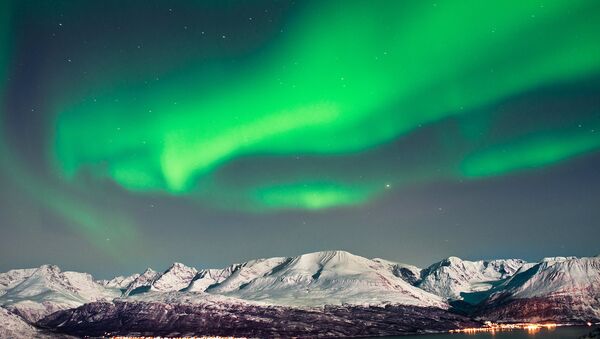MOSCOW, October 31 (RIA Novosti) — Russia's new submission to the UN Commission on the Limits of the Continental Shelf (CLCS) in a bid to assert its rights over a greater maritime territory in the Arctic Ocean apparently indicates that Moscow has built a stronger case in support of its claim since its previous submission back in 2001, experts on boundary disputes told RIA Novosti on Friday.
Russia was the first of Arctic nations to lay its claims for an outer limit beyond 200 nautical miles with the CLCS, which asked Moscow to make a revised submission containing more data to support the claim, said Martin Pratt, a professor at Durham University's Center for Borders Research (IBRU), which is a research center specializing in the resolution of international boundary and territorial problems.
"It is presumably this revised submission that is reported to be forthcoming early next year. Since it will be more than 13 years since the original submission, I would assume that the Russian government has collected significant quantities of additional data," Prof. Pratt told RIA Novosti.
He added it remained to be seen whether Russia would stick with the limit proposed in 2001 or submit a revised outer edge of the Arctic continental margin based on the new data.
On Wednesday, Russia's Minister of Natural Resources Sergei Donskoy said that the submission would be made in spring 2015, and the expedition of the Russian research vessel Akademik Fyodorov has completed all the scheduled research in the Arctic.
Prof. Ted McDorman, from University of Victoria's faculty of law, told RIA Novosti this announcement did not suggest that the area involved was any different than that indicated in 2001.
Nations' submissions to CLCS are confidential and are only partially revealed in executive summaries, Martin Pratt noted. But the stumbling block may be Russia's inclusion of the Lomonosov Ridge, a 1800-km underwater ridge that has not been yet proven to be part of the Russian continental margin.
"If Russia proposes an outer limit that overlaps with the outer limits claimed by any neighboring state or states, it is possible that the state or state in question might inform the CLCS of the existence of a boundary dispute with Russia, and thereby block the CLCS from considering the Russian submission," Pratt suggested.
Ted McDorman admitted that this outcome was "quite likely", saying both Canada and Denmark were yet to file their claims.
Other nations seeking to extend their exclusive economic zone beyond 200 nm are Norway and the United States. But chances are that all Arctic nations will eventually make submissions, in which the outer limit terminates at the North Pole, thereby eliminating any overlapping claims, Pratt said.
He added however there were suggestions that Canadian scientists in charge of preparing the country's Arctic Ocean submission "did not believe that Canada's continental shelf extends up to the North Pole, but were told by their political masters that they needed to find a way of demonstrating that it does," which would explain the delay in Canada's submission so far.
Should a dispute occur, Arctic states will be forced to make maritime boundary agreements, McDorman told RIA Novosti.
"This is not an uncommon occurrence… Russia has successfully negotiated a maritime boundary with Norway in 2010 that includes a small area where it is very clear that was an overlap of continental shelf area beyond 200 nm," he said.
A similar agreement with respect to areas of any overlapping continental shelf also exists between Moscow and Washington.
In conclusion, Martin Pratt stressed that the disputed extensions to the Arctic boundaries are not about adding territory, but rather about sovereign rights to exploit offshore resource deposits, including potential oil and gas fields, though estimates for energy deposits remain highly speculative, he said.




